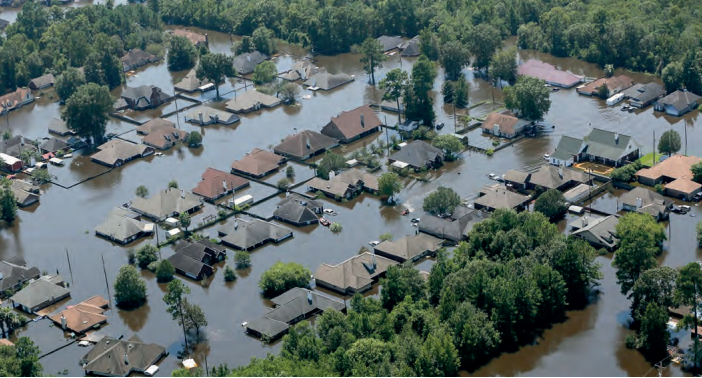Why Small Businesses Should Invest in Preparedness

Disasters can have profound impacts on businesses. 40% to 60% of small businesses fail to reopen after a disaster. For many businesses, potential impacts from disasters include direct physical impacts from extreme events as well as more indirect impacts such as staffing issues, supply chain disruptions, and reduced foot traffic resulting from damage to the surrounding community. Both direct and indirect impacts can interrupt day to day business operations. When coupled with complicating factors such as lack of insurance, lack of financial reserves to replace destroyed equipment or stock, and/or the financial impact multiple days or weeks of unplanned in-operability or slowdown in business, impacts can lead to permanent closures. This, in turn, impacts not just the business owners, but also employees and the communities within which these businesses are located. With this in mind, taking steps to plan and prepare for disasters can minimize business dirsuptions, contribute to a shorter recovery time, and protect local economies and livelihoods.
This brief is based on a Zurich Flood Resilience Alliance Post Event Review Capability (PERC) study analyzing the 2017 flooding in Houston following Hurricane Harvey. This document, and companion brief The Role of Business in Community Recovery, have been produced as summary pieces with key lessons learned regarding the role of businesses and business preparedness in protecting livelihoods and supporting community recovery following disaster events.
The document is edited by the Global Disaster Preparedness Center, the Institute for Social and Environmental Transition-International, and Zurich Foundation.
Houston and Hurrican Harvey: a call to action , The Role of Businesses in Community Recovery
https://preparecenter.org/resources/houston-and-hurricane-harvey-call-action, https://preparecenter.org/resources/role-businesses-community-recovery
